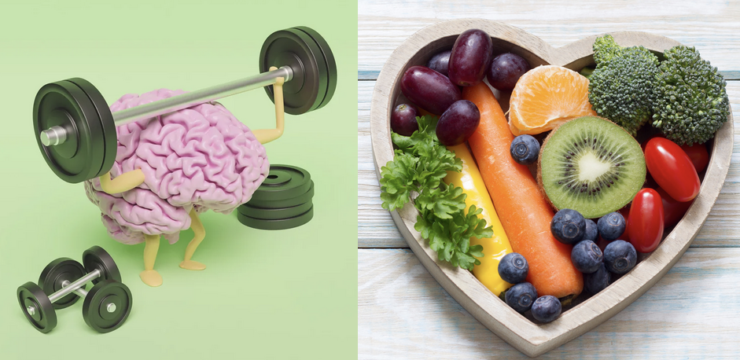In a world that constantly demands our attention, it’s easy for both our physical space and mental state to become overwhelming.
Whether it’s the accumulation of physical possessions, the clutter of daily tasks,
or the mental noise of overwhelming thoughts, it can often feel like we’re drowning in a sea of distractions.
Adopting a minimalist approach can help alleviate this burden by simplifying both your environment and your mindset, creating more room for what truly matters.
The Essence of Minimalism
Minimalism is about more than just owning fewer things; it’s a lifestyle that focuses on intentionality, clarity, and simplicity. It’s about consciously choosing to focus on what adds value to your life and letting go of the rest. When applied to both your physical space and mental habits, minimalism can promote peace, clarity, and a sense of purpose.
Decluttering Your Space
A cluttered environment can create a cluttered mind. Studies show that a messy space can increase feelings of stress and make it difficult to focus. Here are some tips for decluttering your physical space:
1. Start with the Basics:
Begin by sorting through the areas that are most frequently used, such as your living room, bedroom, or workspace. Pull everything out and evaluate what truly serves a purpose. Ask yourself: Do I use this? Does it bring me joy? If the answer is no, it’s time to let go.
2. Practice the One-In-One-Out Rule:
Every time you acquire a new item, commit to getting rid of an old one. This simple rule prevents your space from gradually accumulating unnecessary possessions and helps maintain a minimalist lifestyle.
3. Create Designated Spaces:
Organize your belongings in a way that every item has its place. When everything is stored properly and easy to access, you’ll be less likely to leave things scattered around, reducing overall clutter.
4. Simplify Your Décor:
Opt for clean, simple designs that promote tranquility. Neutral colors and minimalistic furnishings allow for open spaces that feel calming. Avoid overcrowding with decorations; a few carefully chosen items can create a much more impactful effect than a pile of random trinkets.
5. Declutter Digital Space:
Digital clutter can be just as overwhelming as physical clutter. Regularly clean up your devices by deleting old files, unsubscribing from unnecessary emails, and organizing apps or files in a way that’s easy to navigate.
Decluttering Your Mind
A cluttered mind can affect your decision-making, productivity, and overall well-being. Just like physical clutter, mental clutter can prevent you from being present and focused. Here are some ways to declutter your mind:
1. Prioritize What’s Important:
Identify the tasks or goals that truly matter to you. Break them down into manageable steps and focus on completing them one at a time. Let go of unnecessary obligations or distractions that don’t align with your values or long-term goals.
2. Embrace the Power of “No”:
Saying “no” is an essential part of simplifying your life. Politely decline commitments that don’t serve your well-being or your purpose. It’s okay to protect your time and energy.
3. Practice Mindfulness and Meditation:
Engaging in mindfulness practices such as meditation can help quiet the mental chatter and bring you into the present moment. Even a few minutes a day can significantly reduce stress and clear your mind.
4. Create a Daily Routine:
A structured routine provides stability and helps reduce decision fatigue. Having a set schedule for your work, exercise, meals, and relaxation can create a sense of order and prevent overwhelm.
5. Limit Information Overload:
In the age of constant information, it’s easy to feel mentally overloaded. Set boundaries for your consumption of news, social media, and other sources of information. Practice mindful consumption by filtering out what isn’t necessary or helpful for your well-being.
Minimalism in Practice: A Holistic Approach
The minimalist approach is not limited to just decluttering your home or mind—it’s a holistic lifestyle that permeates all areas of life. By simplifying your space, your routines, and your thoughts, you can create more time and mental space to focus on what truly brings joy, fulfillment, and purpose.
1. Cultivate Gratitude:
Minimalism encourages you to appreciate the value of what you already have, whether it’s possessions, relationships, or experiences. Shifting your focus from “more” to “enough” can promote a greater sense of contentment.
2. Embrace Slow Living:
Minimalism often goes hand in hand with the philosophy of slow living. Slow down and savor the small moments of life. Prioritize quality over quantity in both your experiences and relationships.
3. Nurture Meaningful Relationships:
Instead of spreading yourself thin with numerous social obligations, invest time in deeper connections. Quality relationships provide greater fulfillment and emotional support than a wide circle of acquaintances.
4. Mind Your Consumption:
Minimalism encourages conscious consumerism. Be mindful of the items you purchase, the food you eat, and the media you consume. Strive to make decisions that are sustainable and aligned with your values.
Conclusion
Decluttering your mind and space is a powerful practice that can bring clarity, calm, and a renewed sense of purpose to your life. By embracing minimalism, you’re choosing to make room for the things that truly matter: peace, focus, and joy. Whether it’s through simplifying your surroundings, creating intentional routines, or cultivating mindfulness, the minimalist approach offers a path to a more meaningful and less stressful life.
Start small, take it one step at a time, and soon you’ll experience the benefits of a clear space and a decluttered mind.

